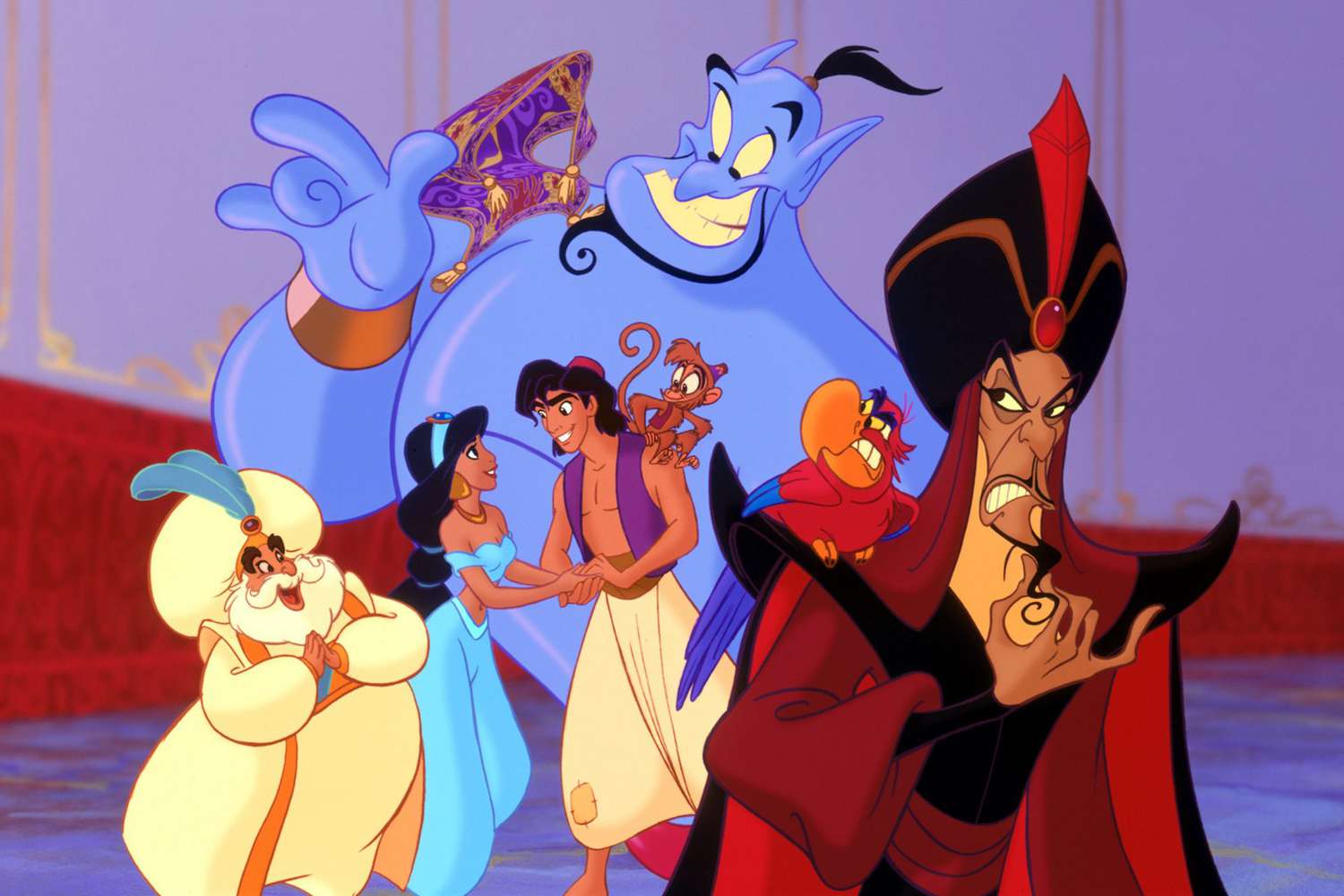Listed by Sports Illustrated as one of the greatest wrestlers in WWE history, few wrestlers, or entertainers for that matter, have done more to brand their name than Chris Jericho.
From the eponymous List of Jericho, a bit he made famous on the WWE stage, to his rock n’ roll persona which has become part of his identity from the wrestling ring to his heavy metal rock band, Fozzy, “Jericho” is synonymous with an over-the-top drive that knows no bounds, and some say, an ego to match. We discuss the motivation behind his unrelenting self-promotion, and work ethic, throughout our talk.
Talk is Jericho is his popular Westwood One podcast show; But I’m Chris Jericho, a streaming comedy series, is going into its second season (CBC Canada); and a collaboration with Hot Topic clothing stores on a T-shirt featuring his likeness and emblazoned with “Jerichoholic,” ensures his name and image are everywhere these days.
In Jericho’s new book (the fourth one he’s written, if you’re counting), No Is A Four-Letter Word, Jericho describes himself as an underdog who set his sights on professional wrestling and rock n’ roll, while growing up in a small town in Winnipeg, Canada. As a teen, he dreamed about making it big, though he says he got little support from friends and acquaintances in his small “prairie town” as he puts it. It was his father, a retired NHL hockey player, and his grandmother, an enthusiastic wrestling fan, who gave him the confidence needed to pursue his dreams.
He favors using his name, Jericho, to saying “I” or “Me,” when speaking about himself, and pulls no punches when discussing his success, both, inside and outside the ring.
Chris Jericho is determined to give the biblical Walls of Jericho a run for its money with respect to historical value.
TME: Tell me about your stage name “Jericho.”
Chris Jericho: It just sounded cool. I originally thought up the name “Jack Action,” and the guy I was originally training with started laughing at Jack Action (Laughs). At the time I needed to think of a name quickly, because I had a show coming up in three weeks. I was into a band called The American Dream, and they had an album called Walls of Jericho. I was in my car, I looked at that album and I thought, “That’s a pretty cool name.” I was also a big fan of the show Teen Titans back then, and there was a character called Jericho, although he was the character with the worst superpowers. But the combination of the two and I thought, “Chris Jericho.” When I was training in Canada, they wanted me to be a country western type of character called Cowboy Chris Jericho, and I was mortified about that because I was a rocker guy. In my very first match, I’m listed as “Cowboy Chris Jericho” from Casper, Wyoming.
TME Then you quickly made your transition to a rock-n-roll character, I’m assuming.
Chris Jericho: Well, yeah. I mean, my character wasn’t necessarily a rocker at that point. I just wasn’t a cowboy (laughs).
TME: I read your latest book, No Is A Four-Letter Word. You’re a “Mountains in the Distance” kind of a guy. You don’t rest on your laurels. It’s not about the mountain that’s already been climbed; it’s about that next mountain in the distance. Even though you’ve done a million different things, is there a dream or goal yet to be fulfilled?
Chris Jericho: I don’t really have an answer for that, because I don’t set goals or boundaries for myself. I react and go with the flow of opportunities that are offered to me. When I was a kid I wanted to be in a rock n’ roll band and I wanted to be a wrestler; those were the two goals. People didn’t think I could do either of them. But here we are 27 years later. Once you get that kind of confidence and success rate, then you become dangerous. Now I’ll try anything and most of the time it’s a success. I don’t do anything for the money. I don’t do anything that I don’t feel that I want to do. Therefore, it all flows together because I’m just being me and committing to something, and wanting it to be good. It’s when you don’t feel right about something. It’s like if you were writing a piece about someone that you’re not really feeling, and not into. It’s never going to be as good as something that you’re excited about and want to do. Even talking about But I’m Chris Jericho, this is an idea I had in 2005 when I left the WWE and took a break because I was burned out. I went to LA to study acting. I’d go to these auditions and there would be ten guys who looked exactly like me. You go in and do one line like, “These pretzels are making me thirsty.” And it was like, “Thank you. Next.”
TME: I like the Seinfeld reference…
Chris Jericho: I’d be thinking, “But I’m Chris Jericho. I have a fanbase and notoriety.” I learned in Hollywood that nobody gave a shit. I thought, what would happen if Jericho got blackballed from wrestling and had to start from scratch as an actor? That’s where the idea came from for But I’m Chris Jericho. I pitched the show for 8 years! It was finally sold in 2013 for a first season. Then it took four years for the second season to be made.
TME: Why is that? I watched the first season of the series, which was hilarious. Loved it! Why did it not get picked up for a second season until 2018?
Chris Jericho: That’s the million-dollar question, because it was a hit and it won a lot of awards. At the end of it, I realized it was really good, and we created this universe with all these wacky characters; Scott Thompson was in it, Colin Mochrie was in it from Who’s Line Is It Anyway. Andy Kindler from Everybody Loves Raymond and Bob’s Burgers. These are really funny people. We won awards at the Los Angeles Film Festival, Toronto Film Festival, Vancouver Film Festival.
TME: How did the show get revived?
Chris Jericho: CBC Network in Canada called a year ago and they wanted to do another season. It’s really gratifying. If I believe in something, I will do everything I can to make it happen. After we did the first season, and you were talking about the mountain, I wanted to do more. I knew there was something to this show that was special and funny. Thankfully, finally, CBC agreed with that. If you really want something to happen, sometimes it doesn’t happen easily, and that’s okay. You have to believe in it and stick with it, even if it’s not easy.
TME: Do you consider yourself to be a great manifester?
Chris Jericho: I look at it as being positive and believing in yourself, and eliminating negativity. That was something I learned way early on in my career when I was starting out as a wrestler at nineteen. People see me now as one of the greatest wrestlers of all time, but that wasn’t always the case. Everyone laughed when I originally said I wanted to be a wrestler; literally laughed. One time at church the pastor said, “Chris is going to Calgary to be a wrestler,” and he started laughing. I eliminated those people. Anyone who thought that I couldn’t do it or gave me any kind of negativity, I didn’t allow it to permeate.
TME: What do you teach your three kids about making their dreams come true, or do you simply lead by example?
Chris Jericho: Just set an example, because they’re young right now. One thing I don’t tolerate in my house is if they say, “Well, I’m not good at this,” or “I suck.” No, you don’t! If you want to be good at something, you have to put the time in. That’s the thing with a lot of kids these days, or maybe always; trying once or twice, and if it doesn’t work out they go on to the next thing. If you really want to do something, for example, if you really want to play basketball, it takes more then three free throws at the net to get good. You’ve got to spend hours practicing. That’s what I show my kids, that hard work always wins.
TME: Denzel Washington has a saying he uses a lot that I love – “anything you practice, you get good at.”
Chris Jericho: It’s true. And some people do have a natural talent for something. I could play guitar every day, and I’m not necessarily going to be Eddie Van Halen, but I could probably get to be a pretty damn good guitar player. And don’t worry about what this guy down the block is doing or succeeding at. It’s about, how can you improve yourself on a daily basis? How can you get better at what you want to do? Don’t worry about anybody else. Be happy with what you’re doing.
TME: Which opportunity came first for you, the WWE or your band Fozzy?
Chris Jericho: I started playing music when I was thirteen or fourteen. I began wrestling at nineteen. The wrestling took off first, but I still always dabbled in the music. Then I finally met the right guys, and the music came to fruition in 1999. I was finally able to start working on music because I had finally met the right guys that I wanted to play with. I’ve always had to keep both vocations separate, because a lot of times a celebrity will start a band more as a novelty and sometimes they’re not really all that good at it. I knew I would have to work twice as hard to get respect because of who I am, but that’s fine. There is a select group of people who can do both. Taylor Momsen of Reckless, Jared Leto with 30 Seconds to Mars, or Johnny Depp with Hollywood Vampires. If you’re good, you’re good. A good song and a good musician is a good song and a good musician. Doesn’t matter what else you do on the side. I don’t mind going the extra mile to prove to people that Fozzy is a great rock n’ roll band. Judas (the group’s 7th studio album) has been in the top ten for nine weeks on radio, and doing ten million streams.
TME: Do you feel that Fozzy has arrived? Or do you feel you have something more to prove?
Chris Jericho: We’ve definitely arrived, and we’re bigger now than we’ve ever been. If we stopped tomorrow that’s fine, but until we’re headlining arenas, headlining stadiums there’s always more you can do and bigger you can get. But I’m not worrying about what the Rolling Stones are doing; I’m worrying about what Fozzy is doing. As of right now, we’re the biggest we’ve ever been with a legit hit song, so yeah, we have arrived. We’ve had some other hit songs, but Judas is on a completely different level. I call it The Judas Effect. The awareness of the shows and the awareness of the band, they’re playing it at hockey games now.
TME: Do you see Fozzy, at some point, headlining at Madison Square Garden?

Chris Jericho: Absolutely. If I didn’t… quit now. I grew up in Madison Square Garden. My dad (retired NHL player, Ted Irvine) used to play for the New York Rangers. I remember sitting in the crowd at three or four years old watching him play, and hating the fact that it was so loud. The crowd was so loud, and fast forward to 1999, I made my first appearance at Madison Square Garden for WWE. Then fast forward a couple of years later in 2008, John Cena and I had a cage match that broke the box office attendance record for the WWE Main Event at MSG. It all comes full circle. And, yes, now I want to take Fozzy to Madison Square Garden.
TME: I want to talk about your dad, Ted Irvine, who as we were discussing, was a successful NHL hockey player with the New York Rangers. Was there ever a time when you wanted to follow in his footsteps to become a professional hockey player?
Chris Jericho: No. After my dad retired we moved to Winnipeg [Canada], and everybody plays hockey there; it’s just what you do. I had fun playing hockey; it was a great childhood experience. But honestly, I just wasn’t very good at it. There were four tiers. Tier 1 were the best guys, tier 4 were the worst. I was always a tier 3 guy. They would have tryouts, and I could never even get to tier 2. I wasn’t the worst player, but I wasn’t the best. My dad knew it; he knew I enjoyed it, but the passion wasn’t there. I was always passionate about music and wrestling. Once I let him know what I wanted to do, he was super supportive. We drove out to Calgary to check out the wrestling school, the year before I left to go in 1989. He drove me out there to see what his son was going to be getting into. He was always very, very supportive because he knew hockey wasn’t my thing.
TME: Why wrestling?
Chris Jericho: Why does the world rotate? It always appealed to me. My grandma used to watch it when I was a kid. She’d freak out and yell and scream at the TV. There was always this Saturday trifecta of Bugs Bunny, wrestling and then hockey on television. That was just a Saturday night. She always loved wrestling, and I always enjoyed it and watched it with her. Hockey was always about the team. I liked that wrestling was about the individual and the characters and personalities. Because I was really into music, I liked that a lot of wrestlers had a kind of rock n’ roll type of attitude and image. I became mystified by it.
TME: The theatrics of it all; the combination of theatrics and athleticism in one…
Chris Jericho: Exactly, and characters… the personalities. That’s where it all started. I became a big wrestling fan. I was watching a local wrestling show from Calgary and they advertised the wrestling school on there, and that was it. You’d see wrestling shows on television that were from New York, California, Chicago. Back then, New York might as well have been Mars! How the fuck was I going to get to New York? But Calgary, I could get in my car and drive there in thirteen hours. I decided I wanted to go to Calgary and train how to wrestle.
TME: You talk in your book about your experience in Saudi Arabia, when you were there wrestling for the WWE. You were shocked that women in Saudi Arabia were not permitted to attend your show. You had a lot of female fans there who weren’t able to come see you. They stood outside by the road to catch a glimpse of you or get a wave from you, because that was the closest they were going to get to seeing your match. In light of what is going on in the United States right now, with women fighting for equal treatment in the workplace, and in general, and the fact that you have daughters, what kind of impression did that experience leave with you? How do you feel about it, and would you go back to Saudi Arabia?
Chris Jericho: I’m not going to protest it. When you travel the world, different countries have different customs. Different religions have different customs; different races of people, depending upon where you are, have different customs. You can’t mess with it, you know? When in Rome, as the saying goes. I’m not going to protest going to Saudi Arabia because they don’t allow women to go to the shows. I think it’s ridiculous, and it hurt the business. You go and play to a 70% full house because there’s only guys in there. The vibe is different. It’s not as fun, because you don’t have that female element and the reaction they give you. And why wouldn’t you want women there? But that’s how it is. I can’t change the entire Muslim tradition and the way they do things. I just observe. It’s like the Prime Directive in the Star Trek universe. You can observe, and if you can’t change it, don’t try to.
TME: Let’s talk about your podcast on Westwood One, Talk Is Jericho. Do you feel like something of a journalist when you are interviewing guests for your show?
Chris Jericho: I don’t do interviews in that way. It’s more of a conversation. It’s more about relating, talking, connecting and just having a great conversation. There aren’t questions or a specific structure. When people leave my show, they leave thinking it was a fun show and they were excited to be a part of it. It’s more about being curious and personable, and respecting people who have accomplished something, whether it’s the most famous of actors, hall of fame musicians or a guy I went to high school with. People follow me because it’s Jericho’s show, not so much because of who I have on.
TME: I read you’re making an appearance at WWE Monday Night Raw this year. Can you tell me about this appearance?
Chris Jericho: They’re having their 25th anniversary show. A bunch of people are coming back to be involved in the show, and they asked me to do it. It’s not going to be the Full Jericho Experience, and I don’t want it to be because I don’t want people to think I’m coming back. It’s just one more cameo to say “Hi,” be involved and to be appreciative of the history of the show and all the contributions that I’ve made to it.
TME: Do you think you have a big ego?
Chris Jericho: Absolutely. Not in a dangerous or bad way, but you have to be aware of who you are and what you’ve accomplished. You don’t brag about it, but ego isn’t necessarily a bad thing. You talk to anybody that’s accomplished anything and they’re going to have a little bit of an ego, because you know how much you went through to get it. Like you said about Denzel, you practice something enough, and you get good at it. Well  if you practice something and you become good at it, you become one of the best at it, how could you not have an ego? But there’s still a way to be humble and have an ego, if that makes sense. Someone giving you accolades and their undying admiration, that’s a pretty cool thing. To know you’ve changed somebody’s life or influenced somebody’s life in a positive way, it’s very powerful. That is very humbling and one of the reasons I still love doing what I do after 27 years. A lot of people rely on me to entertain them and to help them out of situations where maybe they’re having a bad day. They can have a laugh on me. I also know that when I walk down the street, 9 times out of 10, someone’s going to want to take a picture or say hello, and I don’t think it’s a bad thing to have that sort of ego. If it is, then I’m guilty of it. I don’t think it’s possible to not have an ego when you have been doing as much as I have and had the level of success I’ve had over the years.
if you practice something and you become good at it, you become one of the best at it, how could you not have an ego? But there’s still a way to be humble and have an ego, if that makes sense. Someone giving you accolades and their undying admiration, that’s a pretty cool thing. To know you’ve changed somebody’s life or influenced somebody’s life in a positive way, it’s very powerful. That is very humbling and one of the reasons I still love doing what I do after 27 years. A lot of people rely on me to entertain them and to help them out of situations where maybe they’re having a bad day. They can have a laugh on me. I also know that when I walk down the street, 9 times out of 10, someone’s going to want to take a picture or say hello, and I don’t think it’s a bad thing to have that sort of ego. If it is, then I’m guilty of it. I don’t think it’s possible to not have an ego when you have been doing as much as I have and had the level of success I’ve had over the years.
TME: You’re now 47. What are your thoughts about turning 50? What does the number 50 signify in your life?
Chris Jericho: Nothing, really. I just had this match in Tokyo (at the Tokyo Dome for New Japan Wrestling) and it was a great match. People were calling it the best match of Jericho’s career, and saying, “Who can believe he did it at 47?” I don’t think of myself that way. I think of myself as someone who’s still in his prime. Because of an age, people are supposed to say that you’re not? Is aging going to happen? Of course, it is. You can’t stop time. But for now, at 47, I feel like I did when I was 27. But I’m a lot smarter and a lot better. Fifty? As long as you still try these days, you can still look good, you can still be cool, and you can still contribute. I saw the Stones last year. Mick Jagger at 74 was still the best front man in rock n’ roll. Not a great front man for 74, a great front man, period! I saw Ann-Margret the other day, she’s 75, and still amazingly gorgeous. There’s no retiring at 55 with a gold watch, anymore. My dad still works at 74. Why shouldn’t he?
TME: So, Chris Jericho at 50 will be a non-event?
Chris Jericho: Jericho at 50? What happens if at 50 I have a better match than I had at 47? What happens at 50 if Fozzy has a Number 1 song? I’m much smarter now than I was when I was young. As long as my attitude and drive don’t go away, it doesn’t matter what age you are.

Movie
Upcoming NTR Junior projects
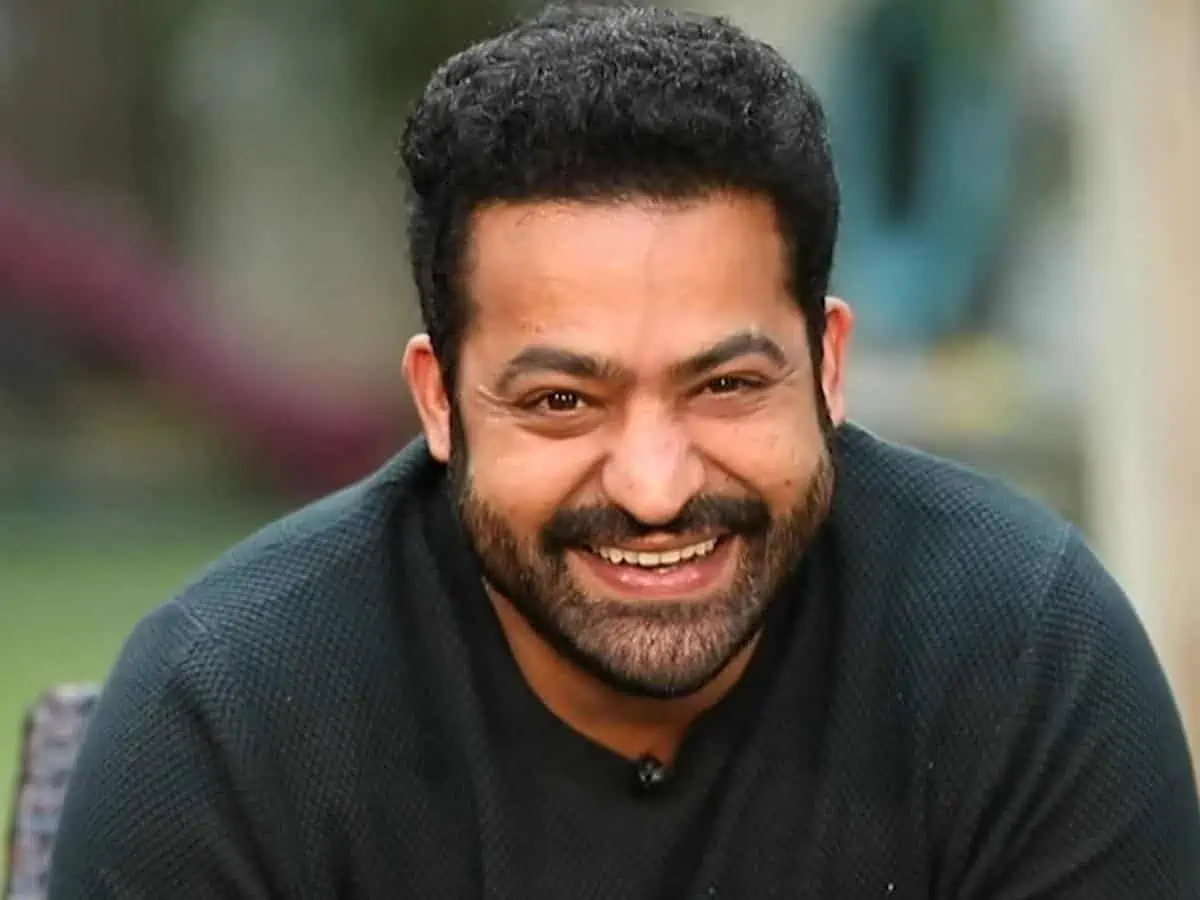
Nandamuri Taraka Rama Rao Jr., affectionately known as Jr NTR, has consistently enthralled audiences with his dynamic performances and versatile acting prowess. Following the successful release of “Devara: Part 1” on September 27, 2024, fans are eagerly anticipating his forthcoming projects. Here’s an overview of what’s next for this action superstar.
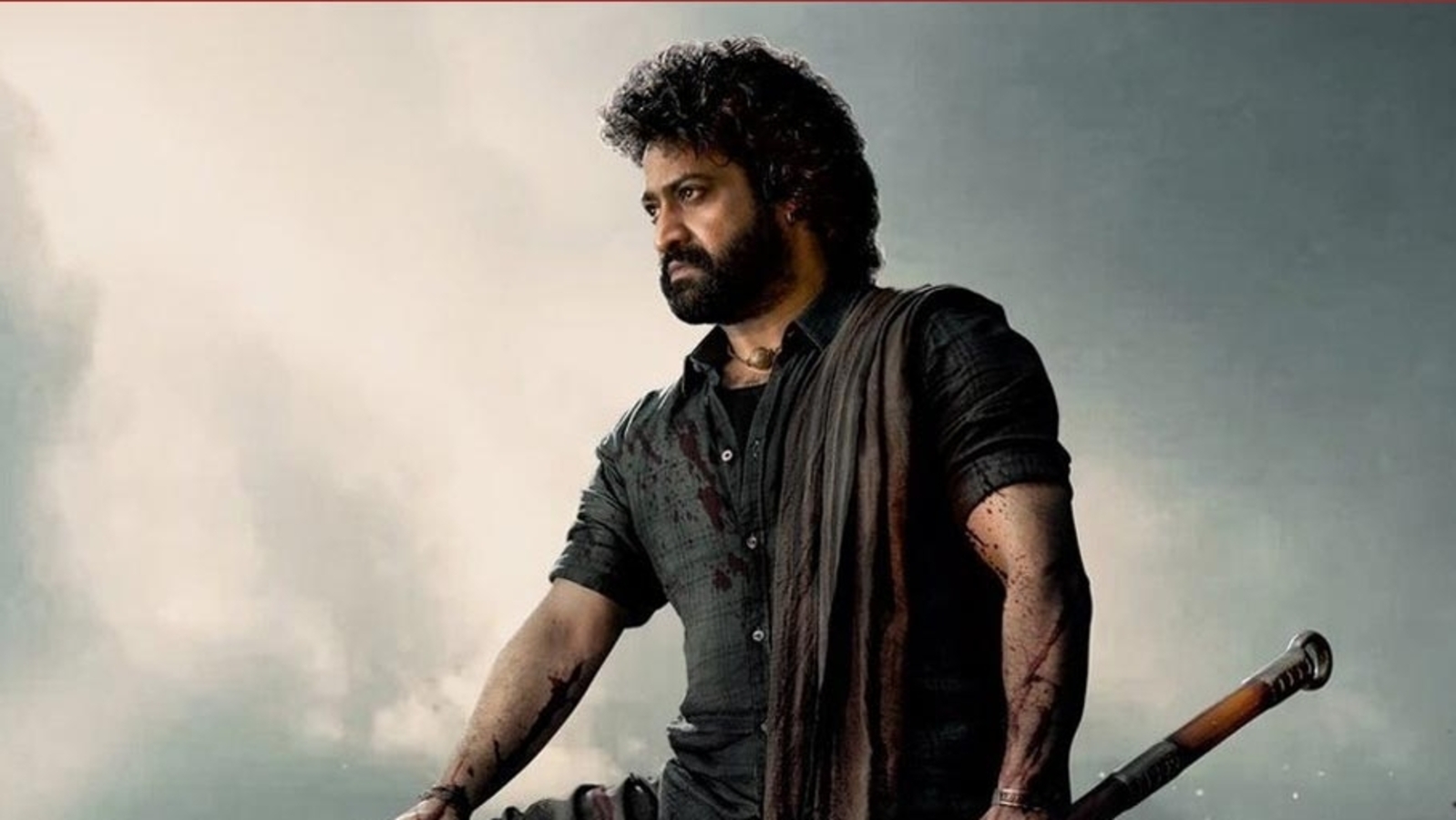
1. Devara: Part 2
After the resounding success of “Devara: Part 1,” which grossed over ₹466 crore globally, the sequel is highly anticipated. Director Koratala Siva has hinted that “Devara: Part 2” will be even more intense, stating that if Part 1 showcased 10% of Jr NTR’s capabilities, Part 2 will unveil the remaining 90%. Filming is slated to commence in the first half of 2026, with a targeted release by the end of that year.
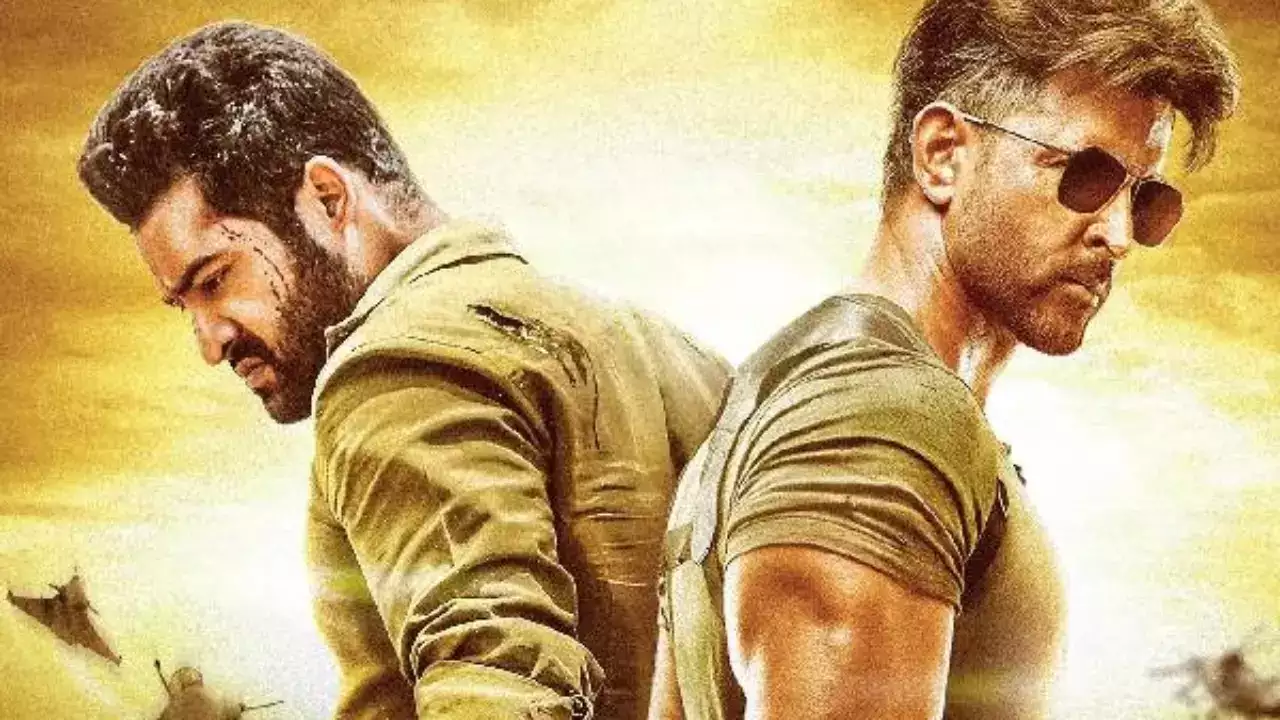
2. War 2
Expanding his horizons, Jr NTR is set to make his Hindi film debut with “War 2,” directed by Ayan Mukerji. This sequel to the 2019 blockbuster “War” will see him sharing screen space with Hrithik Roshan and Kiara Advani. The film is part of the YRF Spy Universe and is scheduled for release on August 14, 2025, coinciding with the Indian Independence Day weekend.

3. NTR 31 (Tentative Title: Dragon)
In collaboration with acclaimed director Prashanth Neel, Jr NTR will star in a period drama tentatively titled “Dragon.” The film is set to delve into themes of immigration and is expected to be one of the most expensive projects for both the actor and the director. The movie is slated for a grand release on January 9, 2026.
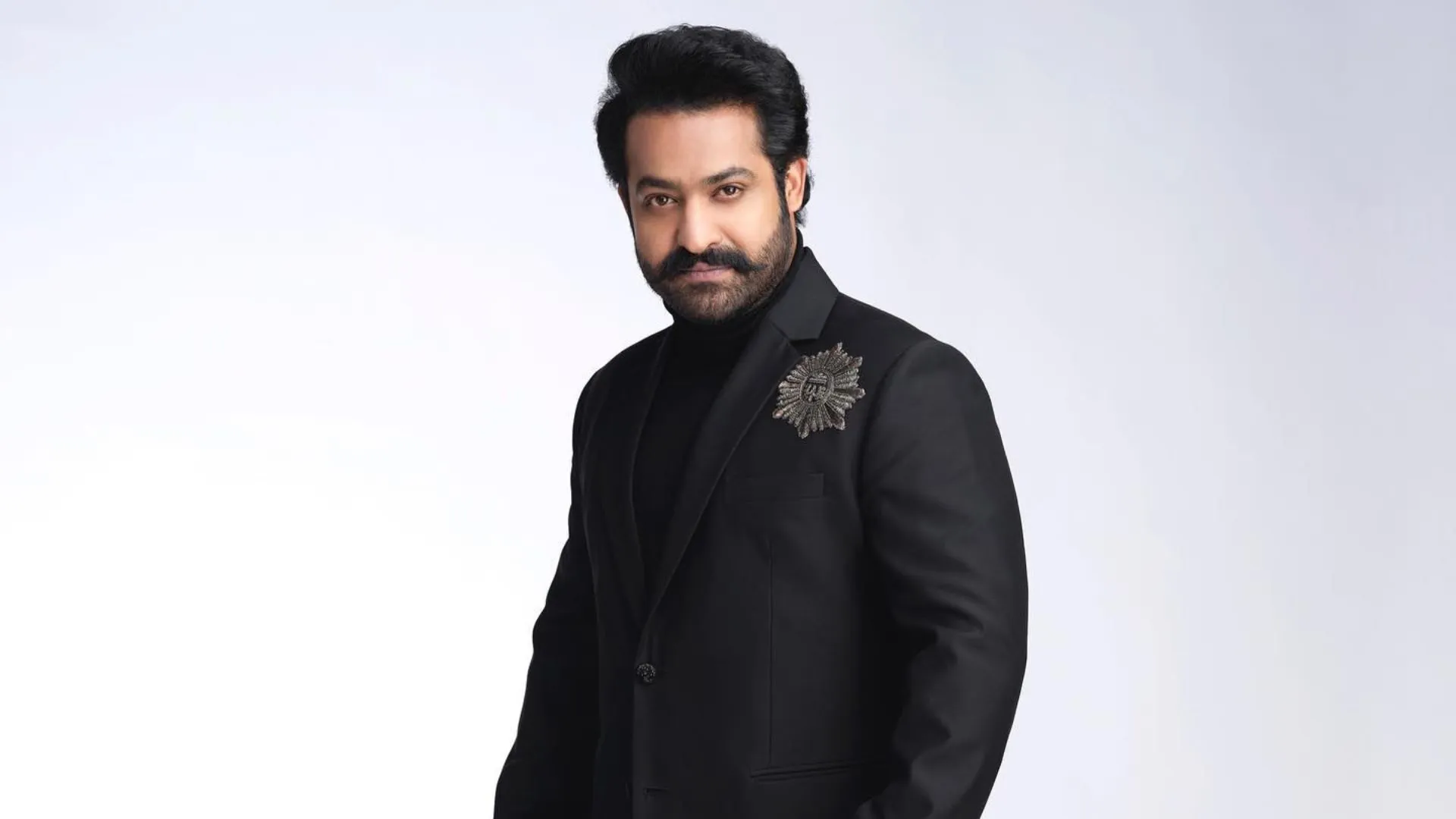
Why Jr NTR is the Action Hero Everyone Wants to See
Jr NTR’s appeal as an action hero stems from his ability to seamlessly blend intense physicality with deep emotional resonance. His performances are characterized by a compelling screen presence, dynamic energy, and a remarkable ability to connect with audiences across diverse roles. This unique combination of skills has solidified his status as a leading figure in Indian cinema, making him the action hero everyone wants to see.
With a lineup of diverse and high-profile projects, Jr NTR continues to push cinematic boundaries and captivate audiences worldwide. His dedication to his craft and ability to reinvent himself with each role ensure that fans have much to look forward to in the coming years.
Movie
“Death of a Unicorn: A24’s Twisted Fairytale You Won’t Forget”
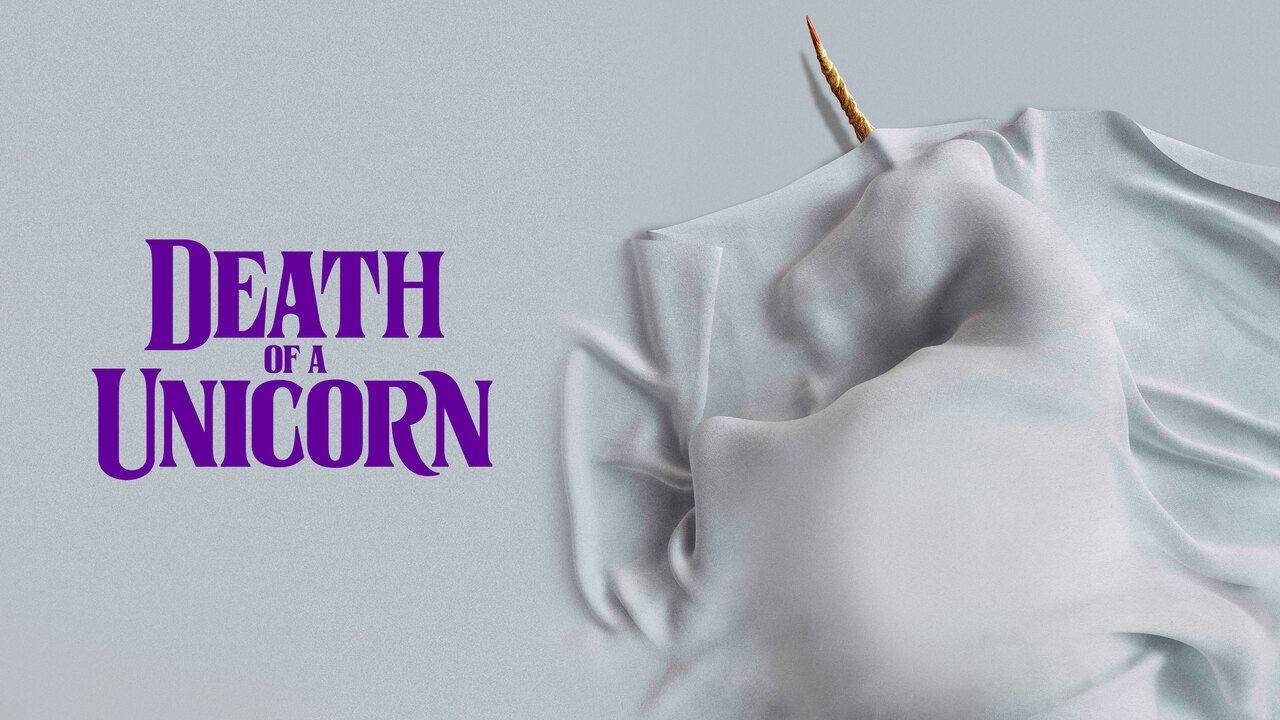
Headed to a wilderness retreat of a wealthy pharmaceutical CEO to hopefully land a lucrative job, widower Elliot and his reluctant daughter Ridley manage to have a car accident with a heretofore-thought creature out of legend, and hijinks ensue!
Oh this is an absolute gem of a movie y’all, brought to you by the genius minds of film production company A24, a delightful blend of horror and campy, almost idiotic, comedy. Make sure your seatbelt is buckled and let’s dive into this!
So Ridley (Jenna Ortega) is you typical teenager, angsty and missing her passed-on mother, full of acne troubles and secretly vaping while her dad Elliot (Paul Rudd) ignores her for much more than appearance purposes, while he schmoozes his way into the good graces of the family they’re going to stay with. Elliot ignores everything but his continued greed, for both money and continuous stability for him and Ridley, really, he swears, so when the misty mountains cause their electronics to go haywire and Elliot’s busy with that crisis, he doesn’t notice until it’s too late and BAM. You’ve hit an actual unicorn with your car.
Like most girls, Ridley can’t help but be fascinated by the poor mythical horse-like creature, and of course she reaches out to grasp the glowing horn, filling her head full of magic and her eyes full of stars and the cosmos, while Elliot has a much more, let’s say visceral, reaction. But rather than calling, I dunno, some sort of wildlife preserve or the cops or even considering burying the unfortunate horned horse, no, the baby is loaded like a downed stag into the back of Elliott’s car and they hurry on to the CEO’s wilderness retreat.
It makes sense that the changes to Ridley’s appearance are the first thing that allows O’Dell (Richard E. Grant) and his greedy, grasping family to understand that the body of the unicorn has healing properties. Wife Belinda (Tea Leoni) is your typical utterly vapid socialite who helps the poor downtrodden of whatever’s currently popular third world country, not for the do-gooder part of it, but for the optics. And their son Shepard (Will Poulter) is a walking poster boy for the arrogant frat boy type who could never settle on just one thing to be or do, and so he tries them all – archery, photography, mixology, music and various forms of pharmaceuticals, all while sporting these terrible fashion choices in shorts and rambling proudly about his nonexistent accomplishments. Griff (Anthony Carrigan) is the family butler and general verbal punching bag, and let us not forget the unfortunate pair of doctoral research scientists who get called in to examine the unicorn, Dr. Song (Steve Park) and Dr. Bhatia (Sunita Mani).
So we have a family of covetous types who all want to divy the unicorn up and sell its various parts for as much wealth and power as they can get, plus the pair of scientists who are flabbergasted to find themselves dissecting an actual unicorn that, hey, guess what, isn’t actually dead for really-real yet. Elliott’s trying to procure his and Ridley’s slice of the action, though honestly, his lawyerly powers of persuasion seem to be rather lacking in this regard, while Ridley is off doing some actual research on medieval unicorns and what the ancient legends in tapestries had to say about them. You know how the modern genie, with his Arabian lamp and his three wishes with their horrifically ironic consequences, actually stems from the ancient legend of that old monster, the creature born from fire that wants nothing more than to destroy all human life on Earth, the Djinn? Our modern legends and beliefs about unicorns is kinda like that.
So everyone, even our scientists with their experiments and O’Dell supposedly being an experienced animal hunter, seems to have forgotten that a horse is a mammal and therefore, has parents. And while everyone is concerning themselves with what to use the babies’ various parts for, only Ridley seems to have realized, that the babies’ sire and dam are coming for it!
We all know horses are smart, and that humans and horses can form an almost mythical bond, but when a stallion or even a dam’s ire is raised, they can attack and defend just as well as any rampaging beast, and do present a very real and dire threat. And these particular horses, with their shaggy midnight-black coats and hooves the size of monster-truck hubcaps, their fangs and absolute righteous rage at their baby being stolen, not to mention both mom and dad’s inherently magical nature, and those utterly badass war-unicorn horns, are here to wreak utter destruction and death upon the humans that would dare to eat, drink and snort, their baby!
Full of utterly ridiculous fun with human greed and the scarcely-remembered wonder of those magical creatures you heard about as a child, cheer along with the Jurassic Park-like screech of our rampaging parents to save their baby, in Death of a Unicorn, in theaters now!


